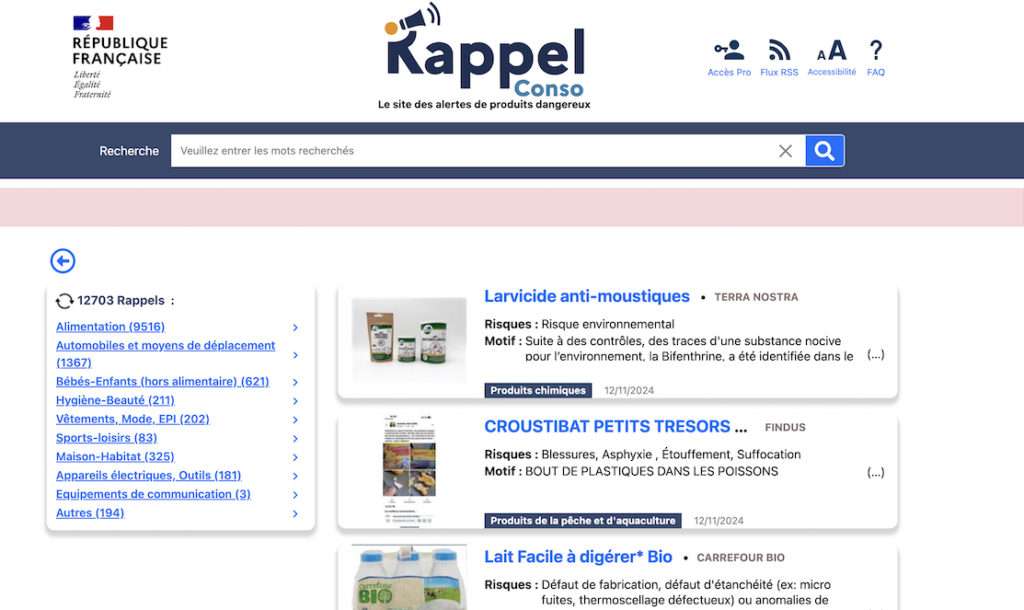A number of common French food products – including well-known milk brands and fresh eggs – have been recalled recently due to health concerns. But how you can keep up to date with warnings for contaminated products in France?
In November, the French government website Rappel Conso added another contaminated food product to their list – bottles of organic milk (Grandlait BIO Bouteille 1L) sold at Leclerc grocery stores.
The milk bottles join a long list of recalled food products – from Salers cheese sold at Carrefour (due to listeria) to chipolata sausages (found to have salmonella present).
Food recalls are not uncommon in France. French daily Le Parisien reported that since the start of November, there have been 56 similar food recalls.
Just last month, French authorities issued a massive recall of eggs from various brands (such as Tout frais tout français, Poietou oeufs, Ovalis, etc) due to a risk of salmonella contamination, after they had been sold at several grocery stores including E. Leclerc, Carrefour, Auchan, and Intermarché.
Canned tuna has also been the subject of scrutiny, after environmental groups announced that those sold in the UK, France, Italy, Germany and Spain contain harmful levels of mercury.
Advertisement
How can I check for recalls?
The French government website Rappel Conso lists all recalls – not just those for food products (alimentation).
You can search for specific products, or browse the list of recent recalls. They should be in chronological order, so the most recent recalls would be at the top of the list.
You can also specify different categories by clicking on them on the left-hand side of the screen.

Screenshot of the Rappel Conso home page
How can I report a contaminated or faulty product?
You can do so on the website Signal Conso.
For food products or anything else (ex. cosmetic or cleaning products) that have an adverse affect on a person’s health following exposure, these can be reported directly to health authorities HERE.
If you are worried that you or someone you know is seriously ill, you should see a doctor right away or call the emergency line (115).
READ MORE: Emergency in France: Who to call and what to say
If you purchased a contaminated product, do not eat or use it. You can attempt to get a reimbursement for your product, assuming you kept the receipt.
How common is food poisoning from contaminated products?
However, food poisoning remains relatively uncommon. In 2022, there were 1,924 reported cased of ‘collective’ food poisonings (meaning there were at least two cases that can be traced back to the same food source).
These food poisonings affected 16,763 people, of whom 643 went to the hospital and 17 died.
Food poisoning has also become significantly less frequent in France in the last few decades. According to a 2002 report by the French parliament, the number of deaths linked to food poisoning dropped from 15,000 people per year in 1950 to 150 a year by the year 2000.
Thanks to advancements in science and technology – namely refrigeration – has made it easier to avoid and detect ‘collective’ food poisoning.
Advertisement
Faustine Régnier, a sociologist for the National Institute of Agronomic Research told Le Parisien that “the industrialisation of food production and marketing in the 20th century has led to health and nutritional benefits.
“Today’s powerful analytical tools for contaminants and toxic substances mean that they can be detected more quickly. In 20 years, the ability to detect the risk of listeria has increased by a factor of five,” she said.
Similarly, French authorities run regular sanitation checks on restaurants, supermarkets and other food stores. They aim to implement 190,000 checks this year.

